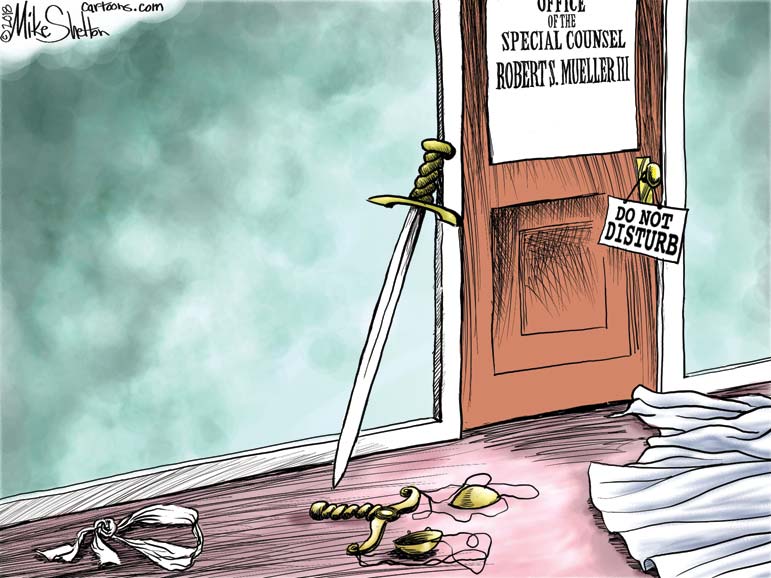
Public or unauthorized disclosures, prosecutors said in a court filing Tuesday, would release information that "would assist foreign intelligence services, particularly those of the Russian Federation," and other actors in future operations against the United States and tip off people and firms the government "believes are continuing to engage in interference operations like those charged" in Mueller's ongoing probe.
The filing seeking a protective order for documents came in proceedings against Concord Management and Consulting. Concord was indicted in February with 13 Russian individuals and two other companies, and accused of being part of an ambitious effort to trick Americans online into following and promoting Russian-fed propaganda that pushed 2016 voters toward then-Republican candidate Donald Trump and away from Democratic rival Hillary Clinton.
Concord is the only one among the group of 16 to appear in U.S. court to contest the charge that its alleged actions were part of a conspiracy that began in 2014 to obstruct lawful functions of the U.S. government through fraud and deceit.
Prosecutors appeared especially concerned that information that Concord's attorneys are entitled to have for defense preparation could be shared with Concord founder Yevgeniy Viktorovich Prigozhin, a business executive nicknamed "Putin's chef" because of his ties to Russian President Vladimir Putin.
Prigozhin also was indicted but has not replied in U.S. court, the prosecutors said, which should preempt his seeing material shared with Concord.
"The government has particularized concerns about discovery in this case being disclosed to Russian intelligence services," prosecutor Rush Atkinson wrote in a court filing to Judge Dabney Friedrich of the U.S. District Court for the District of Columbia.
Eric Dubelier and Katherine Seikaly, working out of Washington, D.C., for the U.S.-based law firm Reed Smith, are representing Concord. The attorneys declined to comment on the court papers.
Information in the case identifies sources, methods and techniques used to unmask the alleged Russian interference, prosecutors wrote, and disclosures without a court-protective could tip off adversaries and enable them to adapt and adjust.
Prigozhin and Concord were hit with U.S. sanctions over Russia's occupation of Crimea and military actions in Ukraine in 2016, and again this March based on "malicious cyber-enabled activities."
Concord's attorneys have sought 51 categories of evidence from prosecutors.
Prosecutors said the two sides have reached an agreement on some points, including that material shared with Concord attorneys would remain in their U.S. offices and not be moved, physically or electronically, outside U.S. borders.
But there remains a dispute over how the defense would handle information it felt it needed to share with co-defendants who have not appeared in U.S. court, prosecutors assert.
One solution proposed by prosecutors is for the court to set up the use of a lawyer not involved in the Concord case to act as a go-between or "firewall" attorney who would be told the name of any foreign national to whom the defense wanted to disclose sensitive information. The firewall attorney could alert the judge to any concerns about a disclosure, under that plan.
Prosecutors have told Concord's lawyers that they plan to turn over as much as 2 terabytes of information - roughly equivalent to as much as 500 million double-sided printed pages. Much of the information is related to hundreds of fake social media accounts, and could be embarrassing to Americans unwittingly duped into thinking they were communicating with others in the United States, prosecutors wrote. The information also identifies "uncharged co-conspirators," they said.
Friedrich previously scheduled a Friday hearing to hear about the status of proceedings against the remaining 16 Russians and firms in the indictment.


 Contact The Editor
Contact The Editor
 Articles By This Author
Articles By This Author